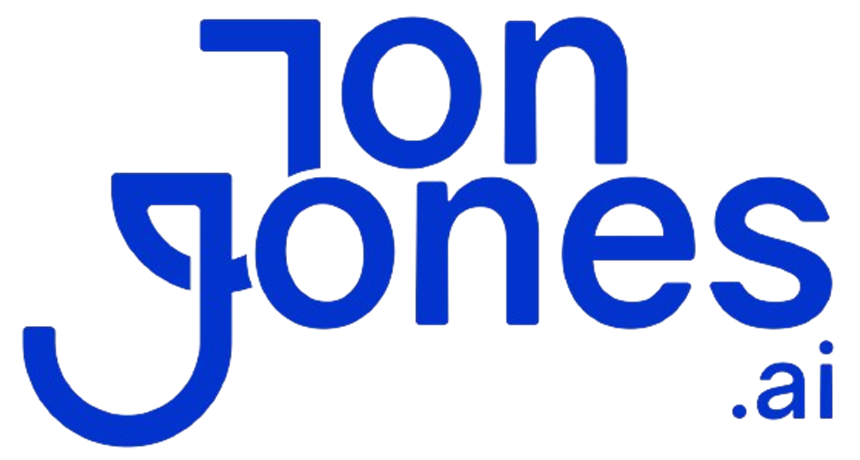Imagine skipping months of guesswork and hitting real growth by next quarter.
AI consulting (artificial intelligence advising) brings expert analysts onto your team to turn raw data into money-making moves.
The global AI advisory market is growing 39% a year and racing toward a $630 billion peak.
That tells us one thing. If you want to stay ahead, you need to lean on pros.
Next, we’ll walk you through seven ways AI consulting can boost your revenue, cut tedious work, and keep you two steps ahead.
Comprehensive Guide to AI Consulting Services and Market Overview

Ever felt swamped by repetitive tasks? AI consulting services bring a team of experts into your business to fix that.
We turn your data into real solutions that boost revenue and eliminate tedious manual work.
The global AI consulting market is growing about 39% a year and is on track to hit $630 billion by 2028. Already, more than half of large enterprises tap into enterprise AI advisory to keep their edge.
To kick things off, you usually start with an AI maturity assessment (checks how ready your company is for AI). It helps us spot gaps in your data, skills, and workflows.
Next, we create an AI transformation roadmap (a step-by-step plan) focused on high-impact projects. We’ll map out quick wins and longer-term goals to keep you moving forward.
Here are the main AI specialties we lean on:
- Machine learning (algorithms that learn patterns from data)
- Deep learning (neural nets with multiple layers to find complex patterns)
- Natural language processing (AI that reads and understands text and speech)
- Computer vision (AI that interprets images and videos)
These tools power things like customer chatbots, predictive maintenance alerts, and laser-focused marketing campaigns.
More than 90% of executives plan to increase their AI budgets in the next year. Over half expect at least a 10% revenue lift within three years.
Partnering with consultants helps you zero in on the highest-impact use cases, dodge costly detours, and accelerate returns. With outside experts guiding your data strategy, model picks, and change management, you’ll move from guesswork to confidence in weeks, not years.
When you team up for AI consulting, you tap into proven methods that align tech choices with your business goals. We turn complex AI jargon into clear steps for real, measurable growth.
Core AI Consulting Services and Methodologies

We slice every AI (artificial intelligence) project into three phases. That way, you stay on track, stick to your budget, and hit your business goals.
- Strategy formulation
Identify high-impact use cases, test feasibility, and sketch a proof-of-concept (a working demo) roadmap. - Implementation
Manage the project, plan adoption, and integrate AI with your CRM (customer relationship management), ERP (enterprise resource planning), or marketing stack. - Training
Run team upskilling sessions, literacy workshops, and ongoing coaching so your people own the tools.
In the strategy formulation phase, we roll up our sleeves with you. Together, we hunt for the best AI opportunities, run quick tests to see what actually works, and plan a path that balances fast wins with big, long-term impact. Check out our approach at AI Strategy Consulting.
Then comes implementation. We handle project management, guide your team through change, and build data pipelines (which move your raw data). Next, we train the AI models (the algorithms that learn from data) and hook them into your systems. That turns a simple demo into a full-fledged, production-ready solution.
Training is our final step. We lead interactive workshops, create custom tutorials, and check in with follow-up coaching. By the end, your team goes from “I guess I get it” to “We run this thing.”
Leading firms often offer the full spectrum: AI strategy, data analysis, custom software development, system integration, and ongoing support. That includes performance monitoring, maintenance, and service-level agreements. You’ll find this expertise at big consultancies like McKinsey, BCG, and Bain, or in nimble boutique teams and seasoned independent pros.
Take Heather Murray, for example. She’s an AI integration specialist with two decades in marketing. She charges $530 an hour for custom GPT (generative AI) development, AI tool assessments, policy design, and literacy programs, and her work has driven $75 million in pipeline revenue for clients like Toyota and Mitsubishi.
Many top consultants pair advanced degrees or certifications with real-world industry know-how. They bring the deep technical skills and on-the-ground experience you need to make AI stick.
Quantifying the Benefits and ROI of AI Consulting

Let’s talk numbers. You’ll see AI (artificial intelligence) ramp up your operational efficiency by 20–30%, faster workflows and fewer mistakes. And manual chores fade away so your team can focus on high-impact work.
Revenue climbs when you spot patterns sooner and jump on upsell chances. Nice.
Here’s a quick look at the stats:
- Average efficiency gain: 25%
- Up to 45% of traditional consulting tasks automated
- $15 trillion: the projected global economic boost from AI by 2030
We measure ROI (return on investment) by comparing your labor savings and new revenue against our consulting fees. That gives you a clear payback period, often under six months for a focused pilot.
Next, here’s our playbook for rolling out AI:
- Run a pilot on a high-impact use case. Track hours saved and extra revenue.
- Roll out in phases. Verify each milestone before you move on.
- Keep stakeholders engaged with hands-on demos and regular updates.
- Pair your tech rollout with a change-management plan that includes team training.
Follow these steps and you’ll lock in real-world metrics, speed up adoption, and build confidence across your organization in AI deployment best practices. Got it?
Choosing the Right AI Consulting Firm for Your Business

Sifting through AI consulting options can feel like wandering a tech jungle, you know? You want someone who really gets your industry, shares proof of success, and can grow as you grow. We’ve been there, you need clear wins, not buzzwords.
Here are the must-haves:
- Industry know-how that lines up with your world, healthcare, retail, manufacturing, or finance.
- Client stories and case studies showing real ROI (return on investment).
- A team that covers the spectrum: data scientists (who crunch numbers) and change experts (who guide your staff).
- Tech stack fit, cloud platforms and machine learning (ML) frameworks that work with your setup.
- A cultural vibe that clicks for smooth teamwork and open communication.
- Scalability and post-launch support so your AI just keeps getting smarter.
Next, let’s compare some top players:
- Kanerika: Builds custom generative AI models for financial forecasting.
- IBM and Accenture: Tackle enterprise-scale projects with global teams.
- McKinsey QuantumBlack and BCG: Start with strategy and deep analytics.
- Deloitte, PwC, EY, KPMG: Offer full-service support from proof of concept to change management.
- Infosys, TCS, Cognizant, Wipro: Deliver cost-efficient solutions offshore or nearshore.
- Slalom, Palantir, DataRobot, HCLTech, C3.ai, Avanade: Blend boutique agility with specialized expertise.
When you’re sizing up vendors, zero in on service-level agreements (SLA) (contracts that outline response times), ongoing optimization, and how they’ll slot AI into your daily workflows. For more vendor-vetting tips, check out our guide on AI Consultancy.
AI Consulting Pricing Models and Cost Breakdown

Consulting gigs can run anywhere from a quick pilot to a multi-year rollout. So, budgets swing from tens of thousands to millions of dollars. We usually pin down your final quote by looking at three main things: the project scope, how messy your data is, and how much change management you’ll need.
Here are some real-world examples of AI (artificial intelligence) consulting pricing:
- Heather Murray charges $530 an hour to build custom GPT (Generative Pre-trained Transformer, an AI language model) models and set policies.
- Rachel Woods offers a retainer of $5,000 to $10,000 a month or a $1,500 hourly rate.
- Ashley Gross bills $50,000 for cleaning data and up to $175,000 for full sales-cycle makeovers.
- Jared Bonilla runs a one-day AI hackathon (a hands-on workshop) at $7,999 plus $3,000 a month for ongoing advice.
- GrantBot’s automations start at $899, audits at $4,500, and full rollouts at $6,750.
- Fayrix’s offshore team works at $10 to $25 an hour.
- ExaWizards’ nearshore crew charges $50 to $99 an hour.
| Model Type | Rate Range |
|---|---|
| Hourly | $10–$530+ |
| Monthly Retainer | $5,000–$10,000+ |
| Project Fee | $50,000–$175,000+ |
| Workshops/Hackathons | $7,999–$10,000+ |
Next, let’s talk SLAs (service level agreements). These lay out response times, uptime promises, and regular check-ins.
Tuck an SLA into your contract and you’ll lock in predictable support, maintenance, and performance reviews. Results matter.
Lessons Learned

- When we kick things off, we run a focused demo that shows value in days, not months. Heather Murray used a mini AI model (a small computer program that learns from data) to score leads with GPT (a text-based AI tool), and in just weeks she built a $75 million sales pipeline.
- We bake hands-on change management into every rollout with training sessions and feedback loops so your team adopts smoothly. Rachel Woods did that on her $5,000–$10,000 monthly retainer and saw engagement climb.
- We align pricing with outcomes so we share both risk and reward. Ashley Gross paid $175,000 up front plus a 10 % pipeline fee and got double-digit ROI, and Jared Bonilla’s $3,000 monthly advisory cut quoting times to under five minutes.
Industry-Specific AI Consulting Use Cases

-
In a trial at the UK’s National Health Service (NHS), we used artificial intelligence (AI) to screen 700,000 women for breast cancer. The AI models flagged suspicious scans, helping radiologists double their efficiency. We caught more early-stage tumors and freed up specialists for the toughest cases.
-
In finance, about 20% of execs already rely on generative AI (a type of AI that creates new content) for mergers and acquisitions (M&A) due diligence. These algorithms sift through contracts, spot risk patterns, and flag oddities in real time. By year-end, we expect that share to jump to one in three.
-
In retail, dynamic pricing (tools that adjust prices based on demand) gives you competitive rates that shift on the fly. Personalized marketing engines analyze what people buy and how they browse to send tailored offers your way. And AI-driven inventory management (predicting stock needs) can slash overstock by 30% and stop sell-outs before they happen.
-
In manufacturing, predictive maintenance (monitoring equipment health with sensors) sends alerts before machines fail. That means you avoid surprise downtime. Real-time analytics catch defects on the line faster than the human eye, and smart supply chain tools juggle materials, labor, and shipping routes for smoother operations.
Developing an AI Consulting Transformation Roadmap

First, we’ll set up an AI governance framework (rules and processes that keep your AI safe and compliant). We cover encryption, data privacy rules, and compliance steps. All customer PII (personally identifiable information) is encrypted with AES-256 at rest and TLS 1.2 in transit so you meet GDPR and HIPAA guidelines.
Next, we’ll establish a Center of Excellence (CoE), a dedicated team that keeps best practices front and center. The CoE curates your model library, hosts monthly show-and-tell workshops, and vets new tools before you use them. We add a proven prompt to the library each week – so you always start with a winning template.
Then, we look after your models with continuous monitoring (that’s watching for model drift, when accuracy slips over time). You get real-time alerts and a live dashboard that highlights any issues. And we book support calls to fine-tune data pipelines and keep performance on point.
Here’s how it breaks down:
| Monitoring Aspect | Description & Example |
|---|---|
| Model Drift Alerts | “Alert: Model accuracy dropped 7% since last week.” |
| Performance Dashboard | “Live F1 score fell below 0.85 threshold.” |
| Ongoing Support | “Weekly health-check calls to fine-tune data pipelines.” |
Final Words
We’ve mapped out the explosive growth in ai consulting, from core services and pricing models to real-world wins and industry use cases. You’ve seen market stats, methodology phases, ROI benchmarks, and selection criteria in action.
Now it’s your turn to shape a roadmap that cuts manual work, boosts leads and scales operations. With clear steps for governance, change management and ongoing support, ai consulting can become your reliable growth engine.
Here’s to smarter workflows and accelerated revenue!
FAQ
What does an AI consultant do?
The AI consultant defines use cases, creates implementation roadmaps, oversees machine learning and natural language processing projects, and trains your team to boost efficiency and drive revenue with data-driven solutions.
What is AI consulting for small businesses?
AI consulting for small businesses adapts AI tools like chatbots, predictive analytics, and customer segmentation to smaller budgets and teams, cutting manual work and increasing productivity.
What salary can AI consultants earn and what is the $900,000 AI job?
AI consultants typically earn $80,000 to $200,000 per year, while senior roles at top firms or startups can reach total compensation packages up to $900,000, including bonuses and equity.
What is the 30% rule for AI?
The 30% rule for AI recommends spending around 30% of project time on data preparation and model validation to deliver reliable insights and reduce the risk of faulty predictions.
What are some top AI consulting firms?
Top AI consulting firms include McKinsey & Company, Boston Consulting Group, Accenture, Deloitte, IBM, and Bain & Company, all offering strategy development, custom software, and large-scale integrations.
How do I find AI consulting jobs?
Finding AI consulting jobs means networking on LinkedIn, applying at firms like Accenture or BCG, and browsing specialized job boards that focus on machine learning and AI strategy roles.
Are there AI consulting courses or resources?
AI consulting courses like IBM’s AI Engineering Professional Certificate and workshops on Coursera or Udemy cover strategy planning, implementation methodologies, and client management best practices.
How do AI consulting startups differ from established firms?
AI consulting startups often charge lower rates, provide niche expertise, and deliver faster results, while established firms bring industry-wide experience, larger teams, and proven enterprise processes.
Where can I discuss AI consulting on Reddit?
You can discuss AI consulting on subreddits like r/MachineLearning, r/artificial, and r/consulting to exchange tools, tactics, and success stories with fellow practitioners.






